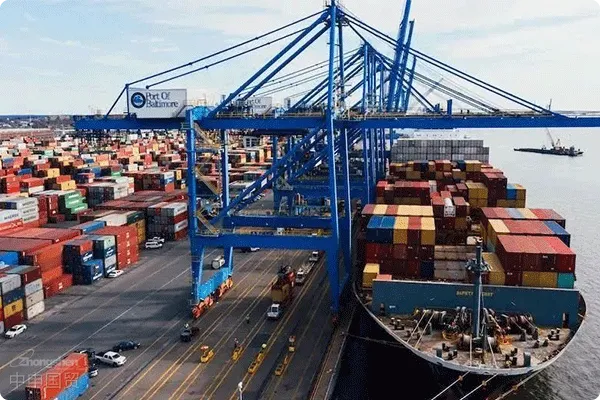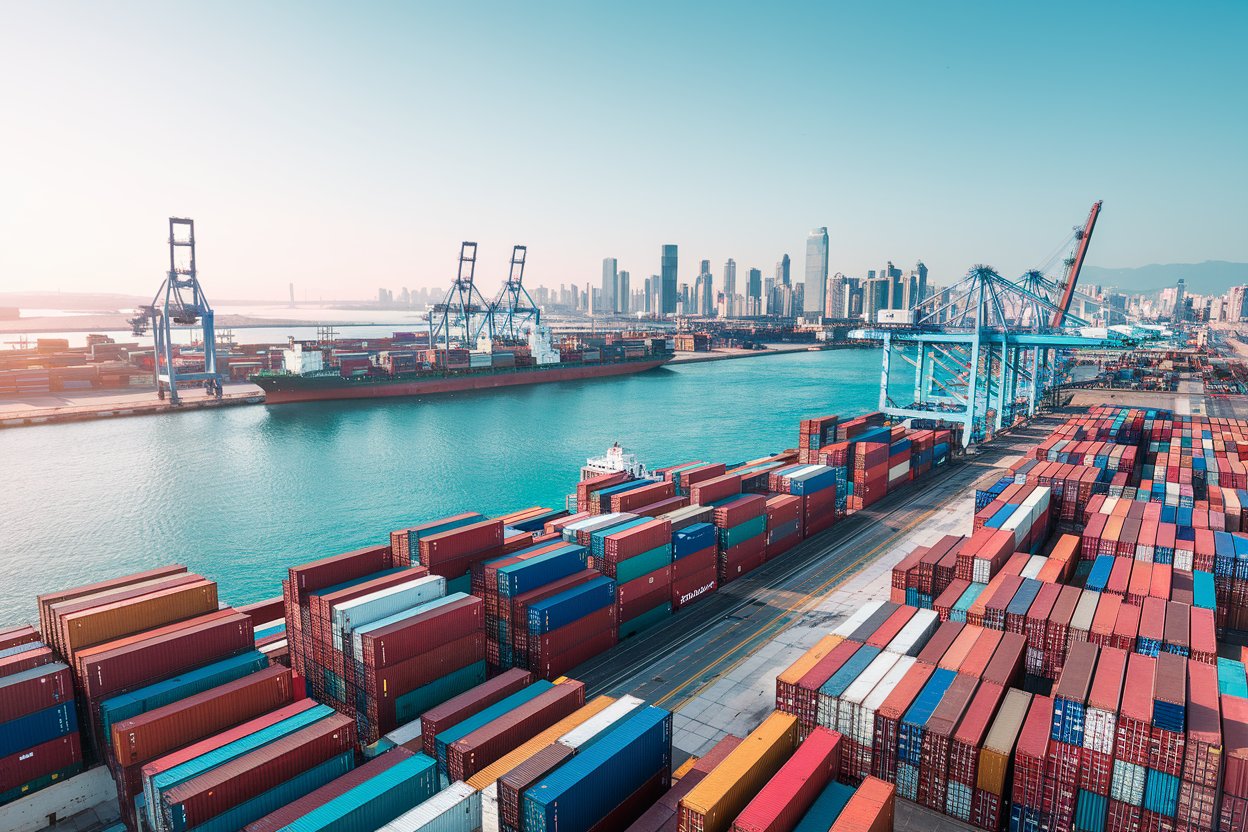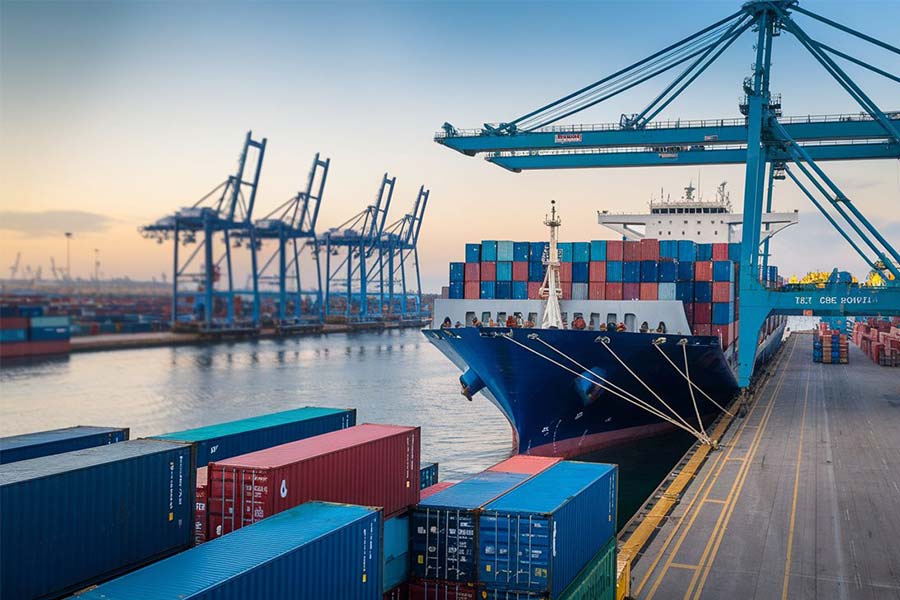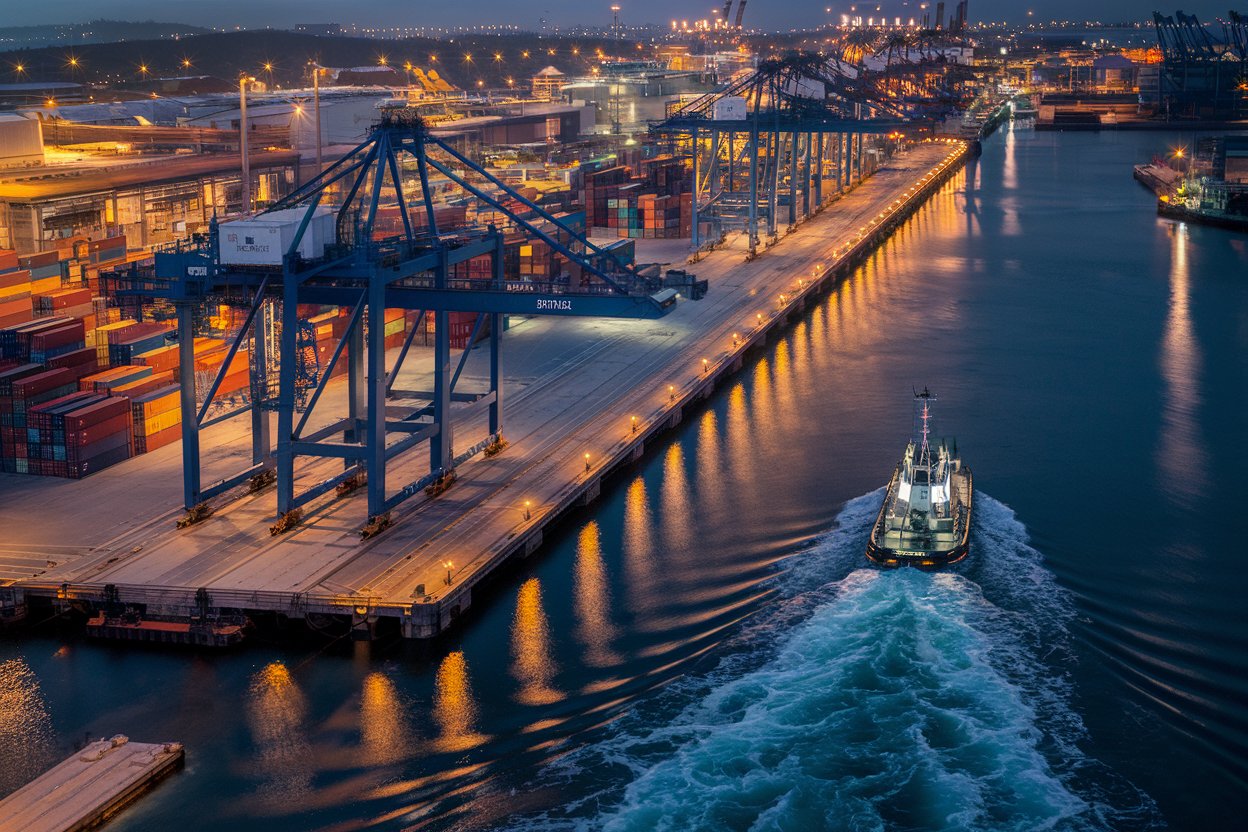- 20 Years of Expertise in Import & Export Solutions
- +86 139 1787 2118

German imported sun-protective clothing: Open up?Foreign trade?New journey
On the grand stage of global trade, importing sun-protective clothing from Germany holds boundless business opportunities. With consumers' increasing awareness of sun protection, the market demand for sun-protective clothing continues to rise. However, import trade is no easy task, involving numerous steps, from document processing to logistics arrangements, from...?Foreign exchange settlement?From product certification, every step must be handled with caution. Next, let's delve into the detailed foreign trade process and key points for importing sun-protective clothing from Germany.
Professional Document Handling: Safeguarding Your Imports
Document processing plays a pivotal role in import trade. When importing sun-protective clothing from Germany, the first step is to prepare a series of essential documents. A commercial invoice is indispensable, as it provides detailed records of key information such as the description, quantity, and value of the goods, serving as a crucial basis for customs taxation and statistics. The packing list, on the other hand, outlines the packaging details of the goods, including the specifics of items in each package, weight, volume, etc., which facilitates customs inspection and the rational arrangement of logistics and transportation processes.
The bill of lading, as the document of title to the goods, is of paramount importance. In?Ocean shipping?During the process, the bill of lading is the key document for cargo pickup. Our company has a professional documentation team with extensive experience, ensuring that all documents are accurately completed and submitted. They are well-versed in the trade regulations of Germany and various destination countries, thoroughly understanding the format and content requirements of the documents. For example, the EU may have specific labeling requirements for imported textiles, and our team can identify these in advance and accurately reflect them in commercial invoices and other documents, avoiding cargo detention or delays due to documentation issues.
During the document processing, it is recommended that importers maintain close communication with suppliers. Obtain accurate cargo information in advance to ensure that the document content matches the actual goods. Meanwhile, promptly confirm any potentially questionable terms with relevant parties. For instance, regarding the trade terms on the invoice, clarify their meanings and division of responsibilities to avoid subsequent disputes.
Efficient Logistics Arrangement: Ensuring Smooth Delivery of Goods
The logistics process is like the lifeblood of import trade; smooth logistics ensures that goods arrive at their destination promptly and safely. For importing sun-protective clothing from Germany, the main transportation options available are sea freight and...?air freight?Ocean shipping is relatively low-cost and suitable for transporting large quantities of goods. If the import volume is substantial and the time requirement is not particularly urgent, ocean shipping is an ideal choice. On the other hand, air freight is fast and can significantly reduce transportation time, but it comes with higher costs, making it suitable for small batches of goods that urgently need to reach the market.
When selecting sea freight, it is essential to pay attention to the sailing schedule and shipping routes. Germany has several major ports, such as the Port of Hamburg and the Port of Bremerhaven. Our company maintains long-term and favorable cooperative relationships with major shipping companies, enabling us to secure more competitive freight rates and stable sailing schedules. When booking cargo space, it is crucial to plan ahead and allow sufficient buffer time to accommodate potential delays. Additionally, attention should be given to the packing method of the goods. Sun-protective clothing, for instance, is typically bulky but lightweight, so it is important to optimize container space utilization to enhance loading efficiency.
For air freight, it is essential to choose reputable airlines and freight forwarders. They can provide higher-quality services and ensure the safe transportation of goods. During air transport, attention must be paid to the packaging requirements of the cargo, as sun-protective clothing may require special packaging to prevent damage during transit. Additionally, whether by sea or air, it is crucial to purchase appropriate cargo insurance to mitigate the risk of potential losses that goods may suffer during transportation.
Challenges and Opportunities in the Context of International Trade
The current international trade situation is complex and ever-changing, presenting both challenges and opportunities for importing sun-protective clothing from Germany. The rise of trade protectionism poses a significant challenge. Some countries may introduce policies such as raising tariffs or setting up trade barriers, which undoubtedly increase import costs and trade risks. For instance, certain nations might impose stringent quality standards and inspection and quarantine measures on imported textiles. If the goods fail to meet these requirements, they could face the risk of being returned or destroyed.
However, opportunities also exist. With the gradual recovery of the global economy, consumer demand for sun-protective clothing continues to grow. Moreover, the development of digital trade has provided new channels and methods for import trade. The rise of online platforms has made information more transparent and transactions more convenient. At the same time, the continuous advancement of regional trade agreements, such as some trade collaborations between China and Europe, has also created a more favorable policy environment for imports from Germany.
Facing these challenges and opportunities, importers need to closely monitor changes in international trade policies. Stay updated on the latest regulations and standards of the destination country and prepare in advance to address them. Strengthen cooperation with suppliers to jointly tackle potential risks. Utilize digital tools to optimize trade processes and enhance trade efficiency.
Southeast Asian market?Import/export?Process and Solution
The Southeast Asian market is one of the key regions our company focuses on serving. Importing sun-protective clothing from Germany to Southeast Asian countries involves a unique set of procedures. Taking Vietnam as an example, the first step is to declare the goods. The importer needs to submit documents such as the commercial invoice, packing list, and bill of lading to Vietnamese customs, while accurately filling in the HS code of the goods to facilitate customs in determining the tax rate and regulatory conditions.
During the customs clearance process, Vietnamese customs may inspect the goods. To pass the inspection smoothly, the actual condition of the goods must fully match the description in the documents. Our company has extensive experience in customs clearance in Vietnam and has established strong cooperative relationships with local customs brokers. We can assist importers in completing the customs clearance procedures quickly and accurately, avoiding additional costs caused by port delays due to clearance holdups.
In terms of logistics and distribution, Vietnam's domestic logistics network is increasingly well-developed. We can select the appropriate transportation method to deliver goods to designated locations based on customer needs. Whether it's transporting goods by road to major cities like Ho Chi Minh City or distributing goods to surrounding areas via inland waterway shipping, we are capable of providing efficient solutions.
For other Southeast Asian countries such as Thailand and Malaysia, although there may be some differences in specific trade regulations and procedures, the overall framework is similar. Our company will develop personalized import and export solutions tailored to the characteristics of each country to ensure that goods can smoothly enter the Southeast Asian market.
Advantages of VTB Foreign Exchange Settlement in the Russian Market
The Russian market is also a crucial business area for us. When conducting trade with Russia, foreign exchange settlement is a key step. Our company offers VTB foreign exchange settlement convenience specifically for the Russian market. VTB is one of Russia's major banks, and using VTB for foreign exchange settlement comes with numerous advantages.
First, the foreign exchange settlement process is relatively straightforward. Under normal trade circumstances, after submitting the relevant documents, VTB can quickly process foreign exchange settlement transactions, reducing the time it takes for funds to be credited. Second, VTB enjoys high credibility and stability within Russia's financial system, effectively mitigating foreign exchange settlement risks.
The foreign exchange settlement process is roughly as follows: After the goods are exported to Russia, the importer, upon receiving and confirming the goods, will make the payment to their account at VTB as per the contract agreement. Our company has set up a corresponding account at VTB. Upon receiving the payment, VTB will convert the foreign currency into RMB based on the prevailing exchange rate and transfer the funds into our company's RMB account, thereby completing the foreign exchange settlement process. Throughout this process, our company's professional finance team will closely monitor to ensure the smooth execution of the foreign exchange settlement.
Product Certification Services: Facilitating Compliant Importation
Importing sun-protective clothing from Germany requires essential product certifications. The European Union has a series of stringent certification standards for textiles, such as REACH certification, which primarily focuses on the safe use of chemicals. Dyes, auxiliaries, and other substances potentially present in sun-protective clothing must comply with REACH regulations. Additionally, there is the Oeko-Tex Standard 100 certification, which emphasizes the impact of textiles on human health, ensuring that the products are free from harmful substances.
Although our company does not directly provide certification services, we will fully assist our clients. We are well-versed in the requirements and processes of these certifications and can offer detailed guidance to clients.
We inform clients about the necessary documentation, the relevant certification bodies to contact, and key considerations during the certification process. Our goal is to help clients successfully complete product certification, ensuring their goods comply with regulations and can enter the target market smoothly.
In summary, importing sun-protective clothing from Germany involves multiple complex steps. However, by choosing a professional foreign trade agency company like?Zhong Shen?By fully leveraging its advantages in document processing, logistics arrangements, foreign exchange settlement, and product certification assistance, while closely monitoring the international trade situation, one can smoothly embark on the journey of import trade and seize the first-mover advantage in the sun-protective clothing market.
Recommended for You
? 2025. All Rights Reserved.










